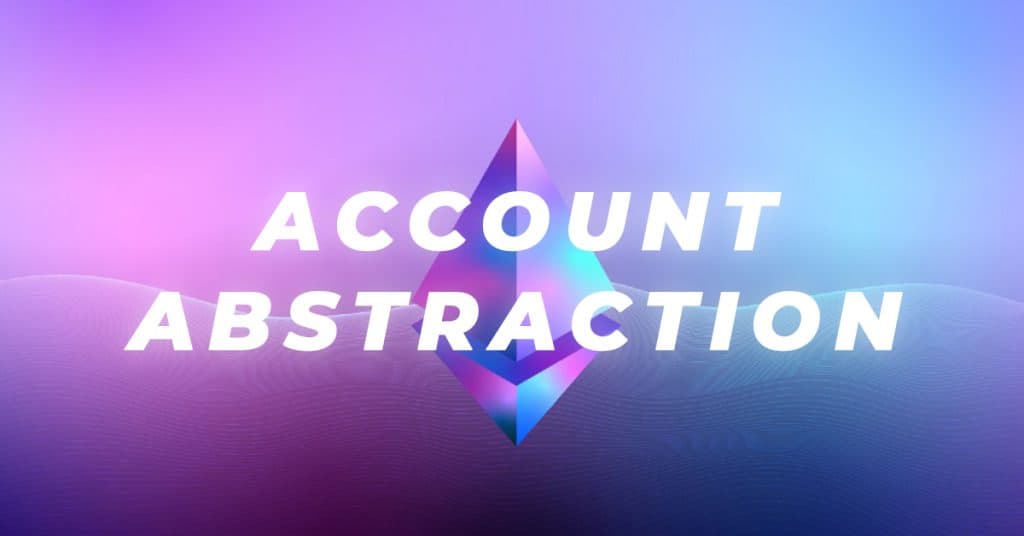Smart accounts are a kind of account hosted on the Ethereum blockchain. They can be controlled using programmable smart contracts instead of private keys.
Ethereum (ETH) is described as a decentralized blockchain network. This platform has undergone considerable changes over time, which include a switch from proof of work to proof of stake consensus mechanism. Notably, the Ethereum 2.0 upgrade has been touted as a major milestone in the transition. Nonetheless, it is still a work in progress.
Despite all that, several other crucial enhancements have been implemented, with the possibility to boost the usability of the network and increase the rate of user adoption.
One such enhancement is the deployment of smart accounts on the Ethereum blockchain. Smart accounts are described as a kind of accounts that can be readily controlled by programmable smart contracts instead of private keys. Hence, they support more advanced functionality and automated management of various transactions and assets.
Their security features include time-based unlocking, multi-signature authorization, and transaction limits that are threshold based. They also implement complex business logic and other blockchain security measures to guarantee safety for users who choose to utilize the platform.
What Are Smart Accounts?
Smart accounts are a kind of account hosted on the Ethereum blockchain. They can be controlled using programmable smart contracts instead of private keys. Thus, the functionality of the account can be automated and customized using code, instead of relying entirely on manual interventions from the account owners.
These accounts come with a wide range of features, including time-based unlocking, multi-signature authorization, and threshold-based transaction restrictions. They also support the implementation of highly complex business logic and security strategies, including payment plans and revenue-sharing methods that can be imposed automatically without involving any third-party intermediaries.
Related: The Unconventional Guide to Ethereum
Account Abstraction
Account abstraction is a budding standard within the Ethereum blockchain network that supports the changing of a normal wallet into a smart contract account. Previously, it was referred to as ERC-4337. However. This standard was not adopted officially. Interestingly, this feature has been integrated into a smart contract and is now expected to be supported by multiple Ethereum ecosystem developers soon.
Account abstraction is a major development that may majorly boost the usability of wallets and enhance the security of user accounts. By changing a wallet into a smart contract account, the feature offers highly developed functionality, which includes time-based unlocking and multi-signature authorization, which can assist in the prevention of private key losses, and in turn secure user accounts.
Another notable feature of account abstraction is its compatibility with other EVM-compatible blockchains, which include Polygon (MATIC), Binance Smart Chain (BSC), and Avalanche (AVAX). It only means that this feature can be utilized across many blockchain networks, which supports increased interoperability and flexibility among users.
While it was originally projected to take up to 2024 for account abstraction to get deployed efficiently, this feature has so far undergone a whole security audit and is already available for use. It might take several months for the feature to be widely available for adoption, but its possible impact on boosting wallet usability and security makes it a majorly exciting development for the whole Ethereum network.
The Launch Of Smart Accounts
Smart accounts were launched as a gradual evolution of the abilities of the Ethereum blockchain. As the Ethereum network has thrived and matured over time, businesses and developers have progressively turned to smart contracts to develop highly advanced and secure financial applications on the Ethereum blockchain.
While smart accounts are not a unique product or service that can be launched in one event, multiple developments have contributed to their growth into a powerful tool for developing highly advanced financial applications on Ethereum.
These applications include the creation of the ERC-20 standard for developing fungible tokens and the development of highly sophisticated programming languages like Vyper and Solidity for writing smart contracts. Also, there will be the emergence of system providers and tooling which will help power the development of decentralized applications (dApps) on the Ethereum blockchain.
Furthermore, the arising of account abstraction that enables wallets to be changed into smart accounts has increased the capabilities of smart contract accounts and boosted their security and usability. The development supports implementations of highly advanced functionality, including time-based unlocking and multi-signature authorization.
Types Of Accounts
Most of the accounts set up on the Ethereum blockchain and other EVM networks are called externally owned accounts (EOAs). They utilize traditional key pairs, which means that they are made up of one private key used to execute transactions and sign messages. Nevertheless, it also means that in case somebody accesses your private key, they gain full control over your funds and account.
Popular wallets like imToken, Metamask, Trezor, and Ledger Nano are all types of EOAs. Despite their massive popularity, they are vulnerable to security risks and if you lose your private key, you might lose access to your funds.
Related: How To Secure Your Crypto Wallet Against Hacks
To resolve this problem, account abstraction was created as a new Ethereum standard. Its primary function is to enable wallets to change smart contract accounts. Notably, smart accounts are designed to leverage the increased security and functionality of smart contracts to incorporate time-based unlocking and multi-signature authorization. Therefore, smart accounts offer users a highly secure and flexible method of managing their funds when transacting on the Ethereum network.
Another type of account is the contract account (CA) described as a unique kind of account powered by the Ethereum blockchain. A contract account is owned and managed by a smart contract, instead of an individual or entity. Hence, the smart contract code determines how the ETH in the account is managed and used.
Interestingly, contract accounts offer a powerful tool for businesses and developers to develop highly advanced and automated financial applications on the Ethereum blockchain. By supporting highly sophisticated automation and functionality, contract accounts can increase the security and efficiency of financial transactions and all other applications that are powered by the Ethereum ecosystem.
But, contract accounts still need an externally owned account (EOA) to deploy and smoothly execute their functions. The EOA initiates transactions and interacts with the smart contract code, which then controls how the Ether in the CA is used.
Advantages Of Using Smart Accounts
Users enjoy various benefits when they use smart accounts on the Ethereum blockchain. They include:
- Transparency – smart contracts are fully transparent, meaning that the code is visible and open to everyone on the network. Hence, auditing the code is easy and users can verify that it is working as intended.
- Cost-effectiveness – smart accounts automate tasks and minimize the need for intermediaries, which makes it highly cost-effective.
- Security – Smart accounts are powered by the Ethereum blockchain. The platform utilizes cryptographic strategies to secure the network. Therefore, smart accounts are secure and highly resistant to fraud and hacking.
- Automation – smart accounts are designed as self-executing programs that readily automate a wide range of tasks. It means that they are highly efficient and manual intervention is kept to a minimum.
The Takeaway
Smart accounts have changed the way transactions and agreements are conducted, supporting automated and trustless contract executions without involving intermediaries. Smart contracts are used for many applications, including insurance policies, financial instruments, supply chain management, and a lot more.
Although smart accounts offer many benefits, they are still nascent and might present some challenges, including the need for secure and careful programming and design to minimize vulnerabilities and the potential of unexpected issues because of sophisticated interactions between many smart contracts.











